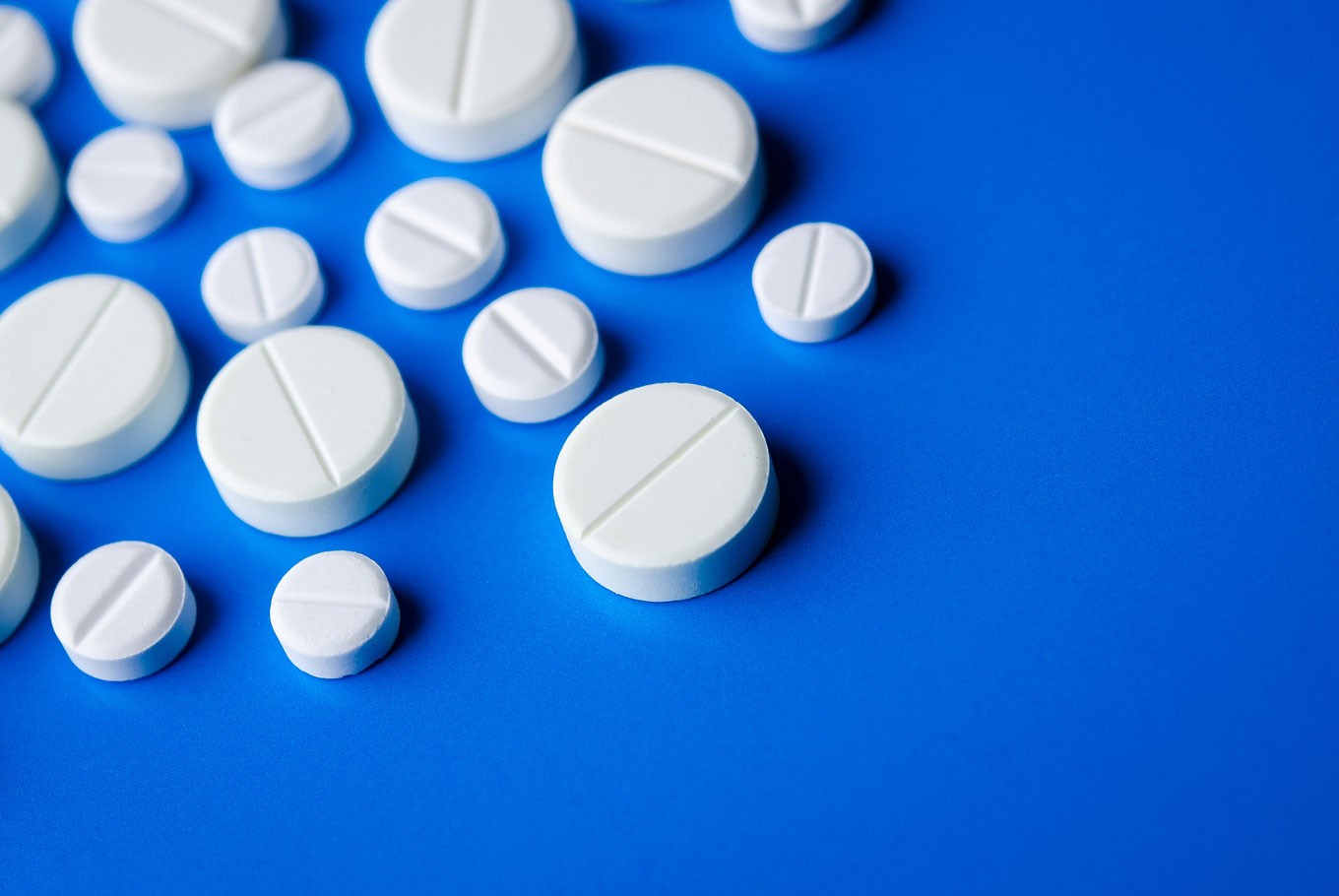Popular Reads
Top Results
Can't find what you're looking for?
View all search resultsPopular Reads
Top Results
Can't find what you're looking for?
View all search resultsLet's talk about aspirin: The good and the bad
Change text size
Gift Premium Articles
to Anyone
Aspirin is one of the oldest drugs in the world. Its use was first recorded by the Sumerians and Egyptians, primarily to treat pain.
In ancient times, Aspirin was made of willow extracts, including by Hippocrates. Later, researchers found other advantages of aspirin. The fact is, aspirin is a multipurpose drug that can subdue many health problems.
Aside from its multiple benefits, however, the drug has side effects we should be aware of.
What is in aspirin?
Aspirin, or acetyl salicylic acid, is a processed form of salicin compounds found in many plants. This compound has many functions in its appropriate dose.
Basically, aspirin hampers production of an enzyme that produces and manages prostaglandin, a compound produced in the body when inflammation occurs. Therefore, all things involving prostaglandin can be handled by aspirin.
Some of the effects produced by aspirin are: antipyretic effect (it lowers the body temperature during a fever), anti-inflammatory effect (it relieves inflammation), analgesic effect (it relieves pain) and antiplatelet effects (it prevents blood cells or platelets from sticking to the walls of blood vessels, thereby reducing the risk of blood clotting.
The appropriate dosage of aspirin
There are differences between over-the-counter aspirin and the one prescribed by a doctor. OTC aspirin in pharmacies usually comes in the form of tablets, chewing tablet or powder, while the one prescribed by a doctor is usually in the form of a periodical slow-release tablet, therefore releasing the drug effect slowly. In a slow-release tablet, the drug level in the blood can be sustained, resulting in a long-term therapy effect.
In their book on pharmacology, Katzhung et al, explained that achieving the anti-pain and anti-fever effect requires a dose of 300-900 mg of aspirin, taken every 4-6 hours. The maximum dose for these purposes is four grams a day. More than that, and aspirin will show its side effects. However, to get the anti-inflammatory effect, a daily dose of 4-6 grams is taken. To get the anti-platelet effect, meanwhile, requires a dose of just 60-80 mg per day.
It is important to take the right dose to achieve the intended effect and avoid risks. For people suffering from heart and/or kidney disorders, the dose must be adjusted. The same applies to long-term use. If you routinely consume aspirin and are about to undergo surgery, either major or minor (such as a tooth extraction), the consumption of aspirin needs to stop to avoid hemorrhage during surgery.
Although aspirin is generally safe, it still has its side effects and can even be dangerous for some people. Therefore, a doctor’s supervision is required.
Aspirin’s health benefits
Overcoming fever
When you experience fever along with pain all over the body, a single dose of aspirin tablet can make you feel a lot better. The antipyretic compounds found in aspirin can send a signal to the brain to adjust body temperature, therefore overcoming the fever.
Effective headache cure
Prostaglandin is a compound that sends pain signal to the brain, while aspirin serves to block this compound, resulting as an effective headache treatment. Migraine also responds relatively quickly to aspirin.
Good for your skin
Aspirin can also be used as external medication, because of its anti-inflammatory effect. It can eliminate acne and bug bites on the skin. For this kind of use, aspirin is not to be taken orally, but transformed into a paste. Aspirin paste can be made from two pulverized tablets with the addition of a couple of drops of water. Simply apply on pimples or insect bites and let it dry. After that, rinse with water. Do be careful if you have sensitive skin, because aspirin paste can irritate your skin.
(Read also: Aspirin reduces bowel cancer risk in obese patients: Study)
Reduces deaths from cancer and fatty liver
The liver can accumulate fat in people who consume a high amount of alcohol over a long period. Aspirin can inhibit the process of fatty liver, thereby decreasing the chance of further complication, such as liver cancer. Many studies have revealed other advantages of aspirin. Once from John Radcliffe Hospital in Oxford shows that aspirin can decrease the number of deaths from many kinds of cancer. Deaths decreased by 34 percent from all types of cancer, and 54 percent for digestive cancer. Twenty years later, the death risk from cancer is 20 percent lower in a group of people who were given aspirin compared to the group who were not given aspirin. Nonetheless, research is still ongoing in the hope of perfecting the outcome.
As a blood-thinner
The anti-clotting effect of aspirin makes this drug effective to thin the blood. A couple of diseases that can be avoided are coronary heart disease and deep vein traveler (vein clogging caused by sitting too long). Although aspirin can help prevent heart attack, patients cannot take aspirin every day without doctor’s advice. Doctors will usually prescribe aspirin as blood thinners to patients who have had a heart attack or stroke before, patients who have a heart stent/ring or have had bypass surgery, and patients with diabetes and a risk of heart attack.
Risks and side effects that may occur
Hemorrhage of internal organs
Due to its nature of thinning the blood, aspirin can cause hemorrhage in various areas of the body if consumed beyond the recommended dose. The most common area for hemorrhage to occur is the stomach. Symptoms of internal hemorrhage can be severe abdominal pain, blackened feces and reddish urine.
Risks for children
Aspirin can cause a serious disorder called Reye's syndrome. This syndrome causes the accumulation of fat in the brain, liver and other organs in a child's body, primarily if aspirin is given to a child with flu or chicken pox.
Risks for pregnant women
Aspirin is classified as class C for pregnant women, meaning it is dangerous for the fetus, because it can cause certain congenital disorders in the fetus, such as congenital heart disease or low birth weight. This is because aspirin can penetrate the placenta and have an impact on the fetus’s growth.
Now, although aspirin has abundant benefits that may sound like it is some magic cure from heaven, you still have to exercise caution when using it. Do consult with your doctor before taking this medication. (kes)












